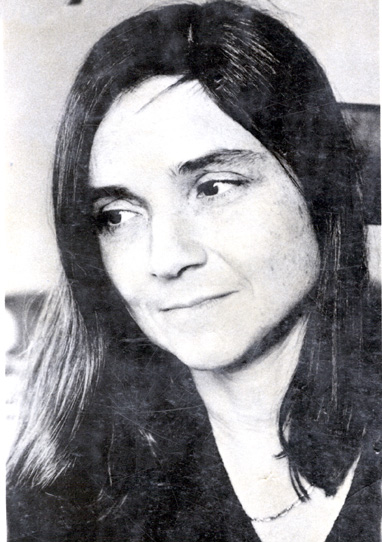 |
| Adrienne Rich [Elisa Rolle] |
It grieves me that this essay still needs to be read by most of the women I've ever met.
from Adrienne Rich’s “ ‘When We Dead Awaken’: Writing asRe-Vision,” 1971:
About
the time my third child was born, I felt that I had either to
consider myself a failed woman and a failed poet, or to try to find
some synthesis by which to understand what was happening to me. What
frightened me most was the sense of drift, of being pulled along on a
current which called itself my destiny, but in which I seemed to be
losing touch with whoever I had been, with the girl who had
experienced her own will and energy almost ecstatically at times,
walking around a city or riding a train at night or typing in a
student room. In a poem about my grandmother I wrote (of myself): “A
young girl, thought sleeping, is certified dead” (“Halfway”). I
was writing very little, partly from fatigue, that female fatigue of
suppressed anger and loss of contact with my own being; partly from
the discontinuity of female life with its attention to small chores,
errands, work that others constantly undo, small children’s
constant needs. What I did write was unconvincing to me; my anger and
frustration were hard to acknowledge in or out of poems because in
fact I cared a great deal about my husband and my children. Trying to
look back and understand that time I have tried to analyze the real
nature of the conflict. Most, if not all, human lives are full of
fantasy — passive day-dreaming which need not be acted on. But to
write poetry or fiction, or even to think well, is not to fantasize,
or to put fantasies on paper. For a poem to coalesce, for a character
or an action to take shape, there has to be an imaginative
transformation of reality which is in no way passive. And a certain
freedom of the mind is needed — freedom to press on, to enter the
currents of your thought like a glider pilot, knowing that your
motion can be sustained, that the buoyancy of your attention will not
be suddenly snatched away. Moreover, if the imagination is to
transcend and transform experience it has to question, to challenge,
to conceive of alternatives, perhaps to the very life you are living
at that moment. You have to be free to play around with the notion
that day might be night, love might be hate; nothing can be too
sacred for the imagination to turn into its opposite or to call
experimentally by another name. For writing is re-naming. Now, to be
maternally with small children all day in the old way, to be with a
man in the old way of marriage, requires a holding-back, a putting
aside of that imaginative activity, and demands instead a kind of
conservatism. I want to make it clear that I am not
saying that in order to write well, or think well, it is necessary to
become unavailable to others, or to become a devouring ego. This has
been the myth of the masculine artist and thinker; and I do not
accept it. But to be a female human being trying to fulfill
traditional female functions in a traditional way is
in direct conflict with the subversive function of the imagination.
The word traditional
is important here. There must be ways, and we will be finding out
more and more about them, in which the energy of creation and the
energy of relation can be united. But in those years I always felt
the conflict as a failure of love in myself. I had thought I was
choosing a full life: the life available to most men, in which
sexuality, work, and parenthood could coexist, But I felt, at
twenty-nine, guilt toward the people closest to me, and guilty toward
my own being.
What prompted you to post this?
ReplyDeletereading a book of her essays that Erica took out from the library for me, wonderful history of her life, etc.
ReplyDelete